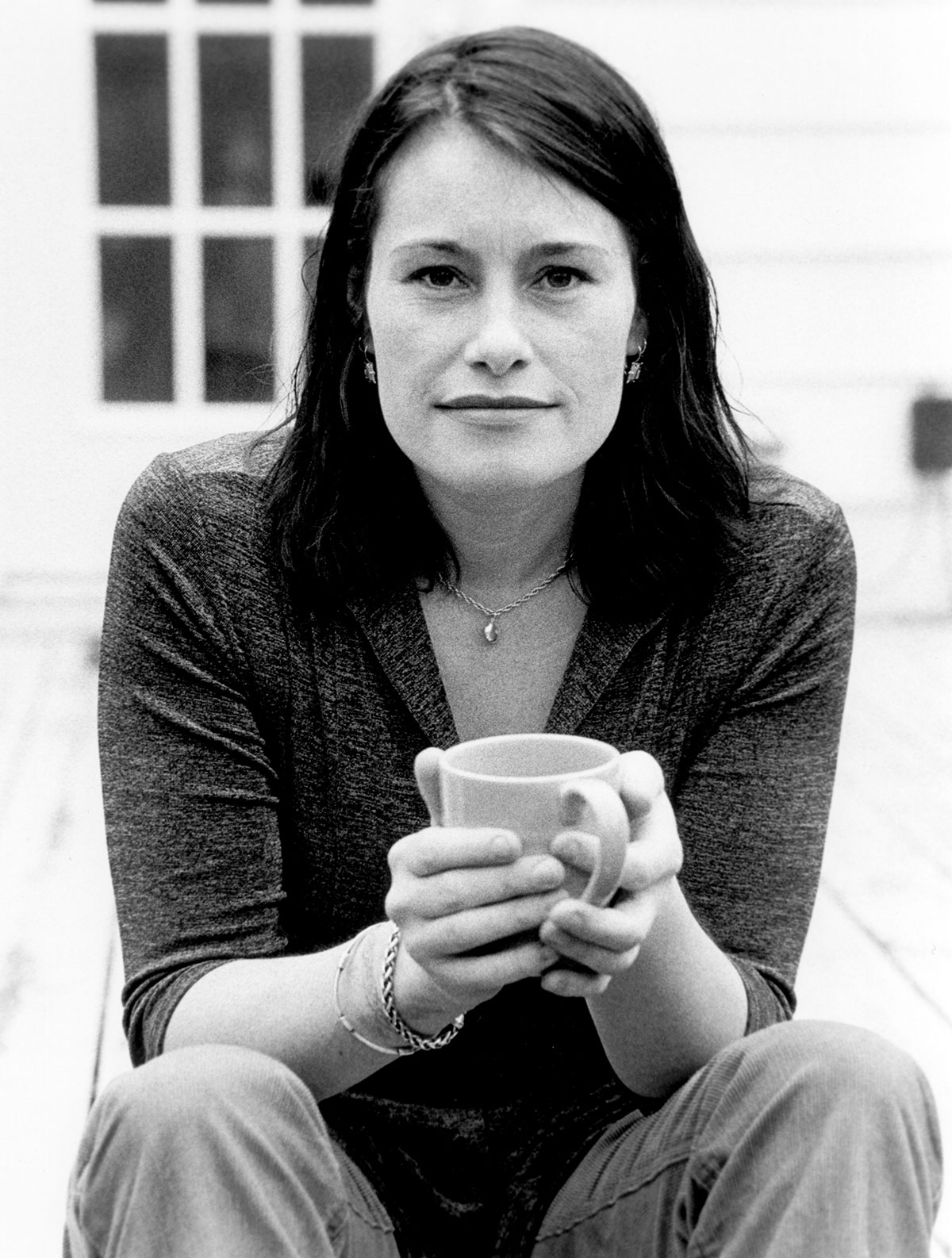
Henry Thoreau had Walden Pond. William Wordsworth had the Lake District. Camilla Gibb had a sun-beaten trailer.
The unlikely retreat, stationed in a trailer park on the shores of Lake Ontario, belonged to her brother, who graciously lent it to the struggling young scholar-turned-author. It was a long way from Oxford, where she had completed her Ph.D. in social anthropology; further still from Ethiopia, where she had conducted fieldwork.
Throughout the summer of 1997, the trailer served as Gibb’s home away from home—a quiet place where she could shut out the world and think, writing on a laptop plugged into the vehicle’s stove. She had set out to write short stories, but soon realized that a book was emerging. In 1999, with only a few published essays and even less published fiction to her name, Gibb’s first novel, Mouthing the Words, was released by Pedlar Press, a small Toronto publisher. The book, which depicts a harrowing yet touching account of sexual abuse, madness, and recovery, soon became a cult hit, then a widespread success, published in twelve countries. It eventually captured the 2000 Toronto Book Award—a prize previously won by Margaret Atwood and Michael Ondaatje—and is currently being adapted for film. All in all, not bad for a debut novel.
While Gibb, thirty-four, may have appeared to come out of nowhere, she had always wanted to be an author. Born in England, but raised in Toronto, she is an intense and private person who was a self-described moody teenager, writing short stories in high school that appeared in board of education anthologies. At eighteen, she showed an early attempt at a novel to her high-school English teacher, who told her it was pretentious. He advised her to have a life first, before devoting herself to writing. “All I knew about writers was that they lived in the West and were dead if they were Canadian. Or else, they were people like Raymond Carver, and I knew I was never going to be a witty white man from the U.S., so there were no points of reference, and I had no idea how one did it. All I knew was one was supposed to go to university. So that’s what I did.”
After ten years of shutting fiction out of her life, Gibb found the urge to write too hard to resist. Then came the summer in the trailer.
The genesis of Gibb’s second novel, The Petty Details of So-and-so’s Life (to be published this fall by Doubleday), was much more traditional. Her brother had sold his trailer, so Gibb found herself writing in a tiny apartment in downtown Toronto (“My dream was to live in a place where you couldn’t see the computer from the bed”), all the while coping with her newly established career, something she found daunting. Following the success of Mouthing the Words, Gibb was understandably worried about living up to the hype of her first novel. “I worried that I would never be able to do it again, unless I lived in a situation of complete deprivation, where I was alienated from all of humanity, poor—this was just after I’d finished being a student and had no money. I really did worry, and I thought the only way to overcome this worry was to start writing again. So, Mouthing the Words came out in September, 1999, and I started working [on Petty Details] that month. I may or may not have been ready to write a new novel at that point, but it was absolutely essential to my psychological well-being.”
Gibb returns to familiar territory in The Petty Details of So-and-so’s Life, which, on the surface, is another novel about coping with the potentially devastating fallout of domestic trauma. Brother and sister Blue and Emma grow up in an emotional wasteland in Niagara Falls, Ontario. After their increasingly unstable and abusive father, Oliver, abandons the family, the children find themselves alienated and looking after each other while their mother finds herself looking at the bottom of a bottle of scotch. The novel affectionately but honestly follows Blue and Emma on their different paths to adulthood. Emma chooses to study archaeology at the University of Toronto, while Blue, a high-school dropout who becomes a tattoo artist after hooking up with a stripper, flies across the country in search of his father.
“With Petty Details, I had fragments of an idea, and the idea was how two people who grow up in the same family can share a number of experiences, yet the perception of those experiences and the outcome is so radically different. It’s the nature-nurture culture; all the questions I asked as an anthropologist as well.”
Petty Details is certainly a more conventional novel than her first book. Gibb shelved the poetic, lucid first-person style of Mouthing the Words for a less subjective third-person narrative. She deliberately wanted to explore writing from a different viewpoint, and her editors at Doubleday were supportive. Occasionally, Gibb found the editing process quite arduous, suddenly conscious of keeping the characters in focus and constantly justifying their every move and motivation. “First novels have a lifetime of gestation, and they come out more fully formed than any subsequent book will ever come out,” she says. “[Petty Details] was a different experience, having discussions with an editor about what I was trying to do, which I never had to have with Mouthing the Words—it was clear to me.”
Despite all the acclaim, Gibb says there are still moments when her eyes well up upon realizing she is making a living as an author. “After your first novel, you’re someone who wrote a first novel. And when you write the second, you actually begin to think you’re a writer. They’re very different experiences.” Already at work on a third novel, Sweetness in the Belly, Gibb is fast becoming one of the most important new voices in Canadian fiction.